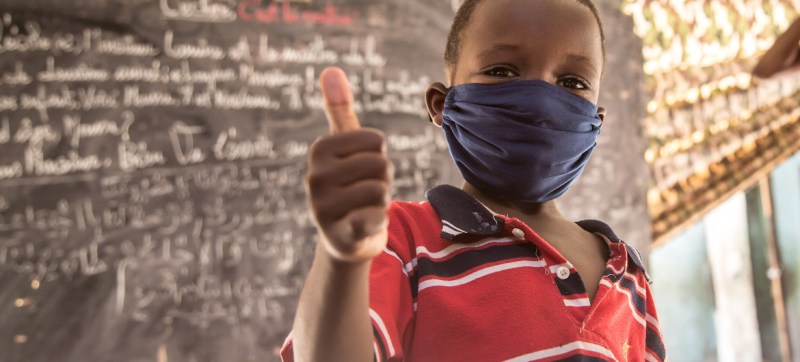 COVID19
COVID19
COVID-19 cases drop for seventh week, but deaths fall less slowly: WHO
New York: The number of new COVID-19 cases reported to the UN health agency has declined for seven weeks in a row, in what the top official there called on Monday “the longest sequence of weekly declines during the pandemic so far”.
However, while weekly cases are at their lowest since February, “deaths are not falling as quickly”, Tedros Adhanom Ghebreyesus, Director General of the World Health Organization (WHO), told journalists in Geneva.
“The number of deaths reported last week was similar to the previous week, and the global decline masks a worrying increase in cases and deaths in many countries”, he explained.
Africa ‘especially concerning’
With the least access to vaccines, diagnostics and oxygen supplies for the critically ill, a steep increase in Africa is “especially concerning”, said the WHO chief.
A recent Lancet medical journal study showed that despite having fewer reported cases than most other regions, the continent has the highest mortality rate among critically ill COVID-19 patients.
And evidence suggests new variants have substantially increased transmission globally.
“That means the risks have increased for people who are not protected, which is most of the world’s population”, he stated.
Leading nations must step up
Currently, the virus is moving faster than global vaccine distributions, according to WHO.
“At the G7 Summit on Saturday, I said that to end the pandemic, our shared goal must be to vaccinate at least 70 per cent of the world’s population by the time the G7 meets again in Germany next year”, Tedros asserted.
He said the G7 intergovernmental group and G20 leading industrialized nations had the capacity to provide the 11 billion doses needed, and should “make this happen”.
Tedros also welcomed the G7’s support for WHO, the ACT Accelerator and a proposed treaty on pandemic preparedness, along with their announcement of 870 million vaccine doses, for less well-off nations, primarily through the UN-backed COVAX equitable shots initiative.
While “a big help…we need more, and we need them faster”, the UN official said, pointing out that more than 10 thousand lives are being lost every day, adding that “during this press conference alone, more than 420 people will die.”
Vaccine urgency
Communities need vaccines “now, not next year”, the WHO chief said.
There are enough vaccine doses to drive down transmission and save lives globally, “if they are used in the right places, for the right people”, he stated, prioritizing health workers and those most at risk.
While high vaccination rates in G7 countries have helped bring COVID cases and deaths to near-record lows, most States still rely solely on public health and social measures to keep COVID-19 at bay.
However new, more transmissible variants mean more stringent measures in low vaccination areas.
While vaccines have a clear and measurable impact, assessing public health and social measures is tougher as countries use a range of different methods.
“Disentangling the precise impact of each individual measure can be challenging”, said the WHO chief.
Moreover effectiveness hinges on the population’s level of adherence and Government’s commitment of support.
“What matters is not just the measure itself, but how and when it is implemented”, he added.
Prioritize benefits
All countries should aim to implement measures to maximize the public health benefit, while minimizing social impact, according to the WHO chief.
To improve evidence-based effectiveness of public health and social measures, he explained that WHO is collecting data globally on which methods are used and the level at which they are applied.
“We’re also working with several countries and modelling groups to assess the impact of public health and social measures on transmission…[and] established a new WHO working group…to study the impact of public health and social measures during COVID-19 and other health emergencies”, said Tedros.
Gift of life: Blood
Also marking World Blood Donor Day, the UN official noted that throughout the pandemic, donors the world over have given blood “and the gift of life”, to others.
This year highlights the role of youth in supporting safe and sufficient blood supplies now and in the future with the message to “give blood and keep the world beating”.
Support Our Journalism
We cannot do without you.. your contribution supports unbiased journalism
IBNS is not driven by any ism- not wokeism, not racism, not skewed secularism, not hyper right-wing or left liberal ideals, nor by any hardline religious beliefs or hyper nationalism. We want to serve you good old objective news, as they are. We do not judge or preach. We let people decide for themselves. We only try to present factual and well-sourced news.







